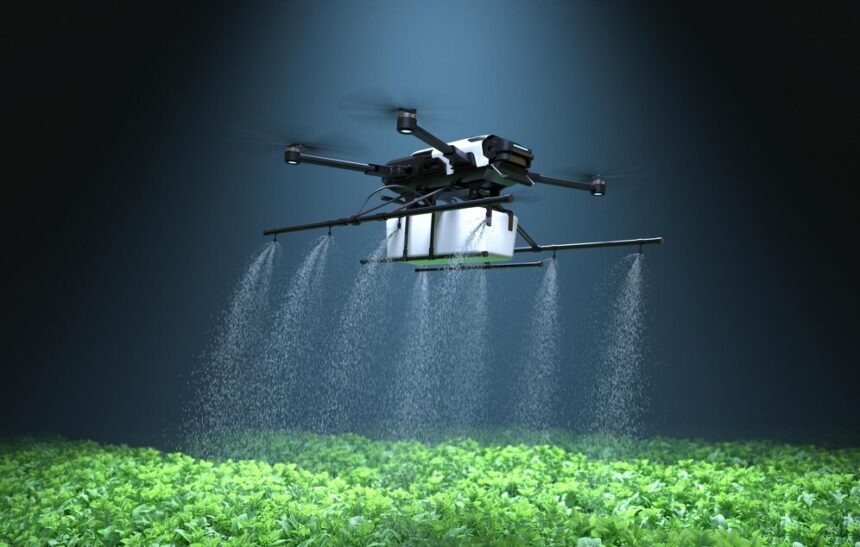In recent years, drone technology has revolutionized the agricultural sector, with China being one of the pioneers in the use of drones for crop spraying. Drone spraying allows for precise application of pesticides, fertilizers, and other treatments, leading to increased efficiency and better crop yields. South African (SA) farmers, who face challenges such as water scarcity, pests, and labor shortages, can learn valuable lessons from China’s experience with drone spraying. However, there are key considerations that South African farmers should take into account before adopting this technology.
China’s Success with Drone Spraying
China has been at the forefront of using drones in agriculture, with drone spraying becoming a common practice in many regions. In a country where labor shortages and the need for precision in agricultural practices are significant concerns, drones have provided an efficient solution. Drones are used to apply fertilizers, pesticides, herbicides, and fungicides to crops with remarkable accuracy. These drones are equipped with high-tech sensors, GPS systems, and spraying mechanisms that ensure the uniform and targeted application of treatments.
The benefits of drone spraying in China are clear. Drones can cover large areas quickly, even in difficult-to-reach locations, reducing labor costs and time. Additionally, drones allow for more precise application, which minimizes the overuse of chemicals, reduces environmental pollution, and improves crop health. The technology has also been instrumental in reducing the risk of human exposure to harmful chemicals, making farming safer for workers.
What South African Farmers Should Consider
While the success of drone spraying in China is impressive, South African farmers must consider several factors before adopting this technology in their own farming practices.
- Cost and Affordability: One of the first considerations for South African farmers is the cost of drone technology. While drone prices have been steadily decreasing, the initial investment for high-quality drones can still be significant. Farmers will need to evaluate whether the technology can generate a return on investment through increased efficiency and crop yields.
- Regulations and Compliance: In many countries, including South Africa, there are strict regulations surrounding drone usage, especially for commercial agricultural purposes. Farmers must familiarize themselves with local regulations regarding drone flight, airspace restrictions, and licensing requirements. Ensuring compliance with the South African Civil Aviation Authority (SACAA) guidelines is crucial for safe and legal drone operation.
- Training and Expertise: Operating drones for spraying requires specialized knowledge and training. South African farmers may need to invest in training for themselves or their staff to ensure proper handling and maintenance of the equipment. Additionally, they must be able to interpret the data collected by the drones to make informed decisions about pest control, fertilization, and other aspects of farm management.
- Environmental Factors: South African farmers should consider how the local climate and terrain may affect drone spraying. In China, drones are particularly effective in regions with large-scale farming operations and relatively flat landscapes. However, South Africa has a more diverse agricultural landscape, with varying topography and weather conditions that could impact drone performance. For example, drones may be less effective in areas with strong winds or challenging terrain.
- Integration with Existing Systems: For drone spraying to be effective, it must be integrated with other farm management systems, such as irrigation, crop monitoring, and pest management strategies. South African farmers should ensure that drones can work seamlessly with their existing technology, such as precision irrigation systems and sensor networks, to maximize their effectiveness.
The Future of Drone Spraying in South Africa
As drone technology continues to improve and become more affordable, the potential for widespread adoption in South Africa grows. The country’s agricultural sector is facing increasing pressure to improve efficiency and sustainability, and drone spraying could play a key role in achieving these goals. With careful consideration of costs, regulations, and environmental factors, South African farmers can leverage drone spraying to boost productivity, reduce chemical use, and improve crop health.
Drone spraying has already proven to be a game-changer in China’s agricultural sector, offering a more efficient and sustainable approach to crop treatment. While South African farmers can benefit from the lessons learned in China, they must carefully assess their own needs and circumstances before adopting this technology. With the right investment, training, and regulatory compliance, drone spraying has the potential to revolutionize South Africa’s agricultural landscape, improving both productivity and sustainability.
Join 'Farmers Mag' WhatsApp Channel
Get the latest Farming news and tips delivered straight to your WhatsApp
CLICK HERE TO JOIN






